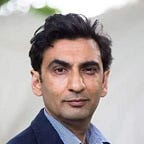The Interplay of Islamophobia, Racism, and Right-Wing Populism
The spectre of “Islamophobia” dominates many contemporary debates at the intersection of politics, culture, and religion. Far-right demagogues are quick to decry accusations of bigotry as curtailing free speech and honest discourse. However, dismissing Islamophobia on knee-jerk pretexts of political correctness overlooks the concrete impacts faced by Muslims worldwide. Before launching critiques of Islam, we must understand the nuanced line between rational, sceptical inquiry, and simplistic Orientalist tropes.
There is often a response from parts of the elite to argue that Islamophobia is simply a question of wokism or political correctness that’s pandering to left-leaning ideas that have no place in today’s world, where it is right that minorities should be open to critique. For many on the right, Islamophobia is a cover for criticism of Islam that is genuine, valid, and appropriate. However, the problem with this situation is very obvious.
First of all, those who wish to critique Islam do not do so from any firm foundation in relation to intellectual, cultural, or even academic levels of understanding. Rather, they tap into well-established tropes that aim to distort and divide—precisely the accusation they level upon those who wish to have Islamophobia considered seriously as a genuine social concern.
Similarly, those who wish to argue that Muslims and Islam need to be opened up to scrutiny often have very limited ideas about the characteristics of these groups in relation to faith, culture, politics, history, language, and identity. This makes much of what those who want to keep space for Islamophobic content say redundant. They do not understand the impacts of Islamophobia, the intensity of hate and misunderstandings, or the lack of recognition that Muslims and Islam continue to face.
The primary aim of Islamophobes is to dismiss criticism of them while also dismissing the wider issues facing Islam and Muslims. Their goal is to reproduce the view that these groups have an inherent “backwardness” relative to the West. This is, of course, complete folly. If we look at the world in historical terms, the West is a relatively recent introduction, much of which was created and sustained through racialized capitalism and globalisation. Racism, Islamophobia, and sexism all relate to the predominant capitalist mode of production that aims to sustain the interests of the few at the expense of the many.
It happens that since the colonial experience all the way to the post-war migration experience, Muslims in Muslim lands and in European and Western spaces have been soft targets, building on existing Orientalist and racist ideas. To even evoke these historical power structures triggers defensiveness and claims one is fabricating a problem—an example of the Islamophobic landscape.
The issue is that this doesn’t just exist in the political and social realms; it finds its way into institutions and practices that infect individuals and their behaviours and relations with each other, such that so-called islamophobia today is hypernormalised. There is a lot of work to do to dismantle it, and it is incumbent upon all decent-minded individuals to do so in the same way that anti-semitism, discrimination, sexism, and homophobia are all social evils that require serious critique.
